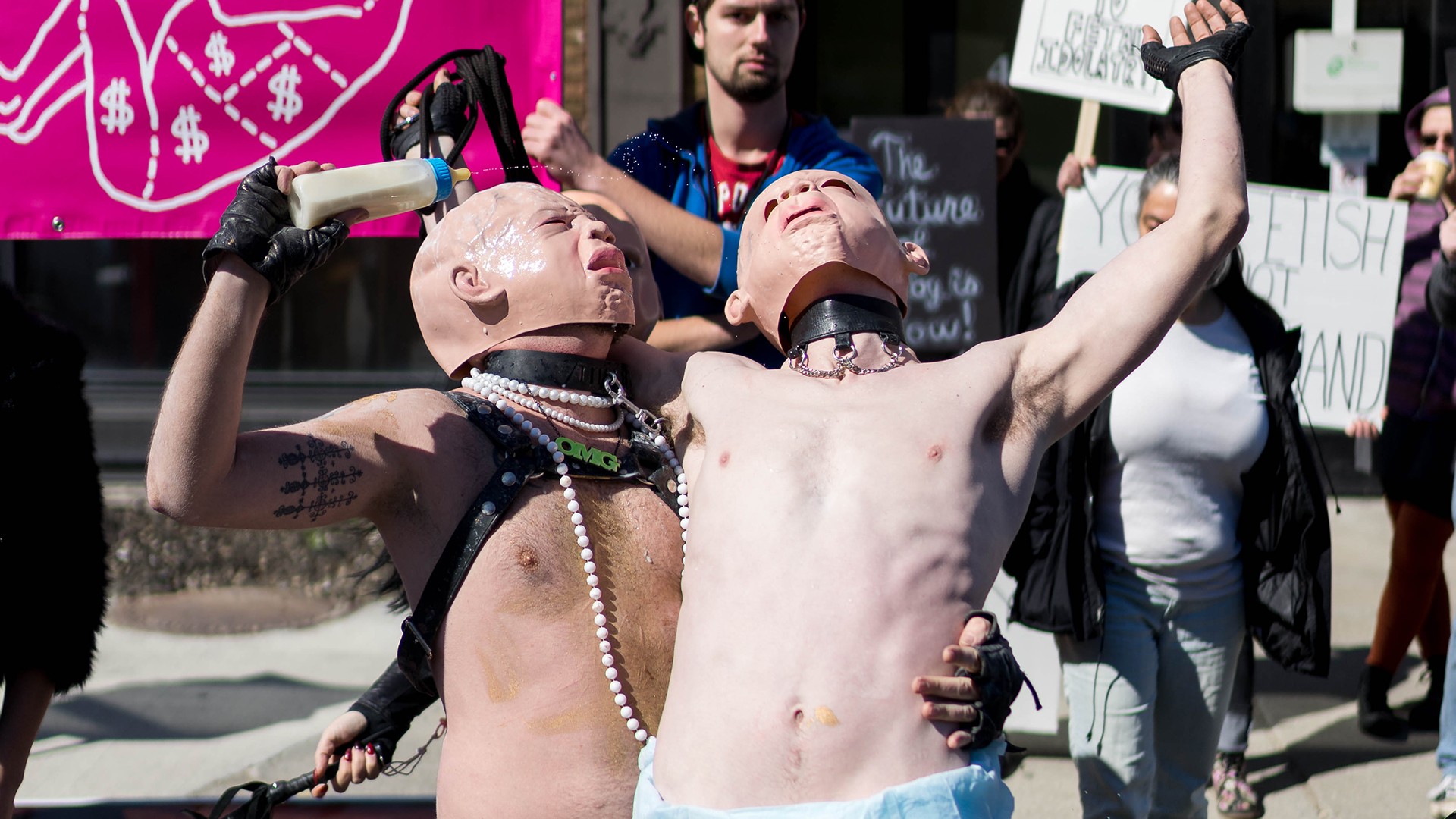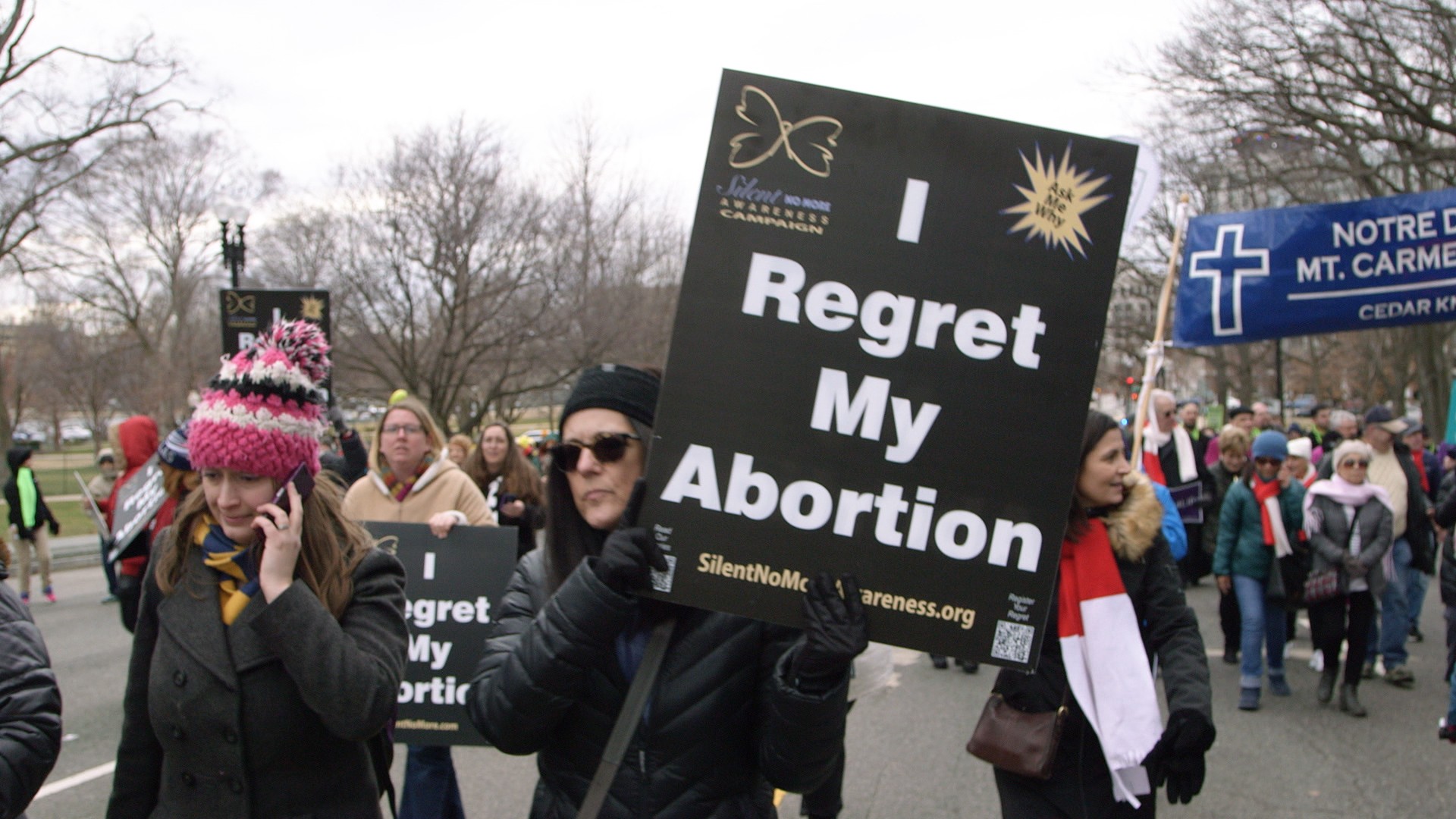In the last month, state legislatures have passed a spate of six-week abortion bans, ushering in a new phase of the ongoing efforts to overturn Roe v. Wade under President Donald Trump.The recent wave of anti-abortion legislation began in March, when Kentucky Governor Matt Bevin signed a six-week ban into law on March 15, which a judge immediately blocked from going into effect. Days later, Mississippi Governor Phil Bryant signed a similar bill, sparking a swift challenge from the Center for Reproductive Rights. Still, undeterred, two more state legislatures sent six-week abortion bans to governors’ desks: Ohio Governor Mike DeWine signed his into law in mid-April, and Georgia Governor Brian Kemp signed his state's into law on May 7.
Advertisement

The recent bills banning abortion at six weeks are modeled on legislation provided by Faith2Action, an anti-choice and anti-LGBTQ organization led by Janet Porter. Porter has been called the “godmother of the heartbeat movement,” a title she’s earned for coming up with the idea of using heartbeat language in anti-abortion legislation. She succeeded in getting the first legislator to sponsor so-called “fetal heartbeat” legislation in 2011, when state Representative Lynn Wachtmann introduced the bill to the Ohio state legislature, with help from Porter, who used ultrasound images to allow fetuses to "testify" at a House committee meeting. Since then, anti-abortion legislators have been able to propose six-week abortion legislation with relative ease due to the model legislation available on Faith2Action’s site, letting lawmakers fill in the blanks to make the bill applicable to their state."The real agenda is to ban abortion.”
Advertisement
But in 2011, some of the most ardent anti-abortion activists in Ohio opposed the inaugural “heartbeat” bill, citing worries that the legislation would become mired in a lengthy legal battle since it was blatantly unconstitutional, and the makeup of the Supreme Court appeared less amenable to upholding anti-choice laws. Among those who expressed concerns about the fate of the six-week ban was Ohio Right to Life, an anti-choice organization which has, over several years, remained neutral in its stance on the legislation—that is, until December when Ohio Right to Life announced it was “time to embrace the heartbeat bill as the next incremental approach to ending abortion in Ohio.” On Thursday, the group commended DeWine for signing the six-week abortion ban into law, thanking him for “taking a courageous stance on behalf of unborn children with beating hearts” in a press release. “Governor DeWine continually stated throughout his campaign that he would sign the Heartbeat Bill, and he made good on that promise today.”
On Thursday, the group commended DeWine for signing the six-week abortion ban into law, thanking him for “taking a courageous stance on behalf of unborn children with beating hearts” in a press release. “Governor DeWine continually stated throughout his campaign that he would sign the Heartbeat Bill, and he made good on that promise today.”

Advertisement
The group’s evolution on the issue reflects a larger shift in what the anti-abortion movement consider a pragmatic strategy for ending legal abortion in the US. There still remains some debate—in Tennessee, the state’s Republican attorney general recently warned that pursuing a six-week abortion ban would be futile. But on the whole, anti-choice advocates feel more confident that the country’s district and appellate courts, which have been packed with conservative judges under Trump, will uphold their unconstitutional legislation.“No one is saying that it is a sure thing, but the 6th US Circuit Court of Appeals is one of the most conservative circuits in the nation,” Jamieson Gordon, the director of communications for Ohio Right to Life, told Broadly in an email. “So we do think the Heartbeat Bill has a better chance there than it might in other circuits.”Jennifer Pomeranz, a public health lawyer and professor at New York University, said Gordon is describing a version of “forum shopping,” the practice of seeking out courts that will likely favor a litigant’s case. In the Trump era, the Fifth and Sixth Circuit Courts of Appeals have become particularly well-known for upholding anti-abortion restrictions, making them both crucial to anti-choice strategy.
Advertisement
“Now that there are new judges appointed at every level, conservatives are trying to enact these laws in places where they know the judge is going to be more sympathetic to their case,” Pomeranz explained. “The idea is that the judge won’t follow precedent, decide to uphold these six-week bans, and then the other side will appeal the decision and it will end up at the Supreme Court.”What Pomeranz describes has long been the master plan of the anti-abortion movement. But whereas conservative politicians once pursued more oblique anti-abortion measures meant to gradually chip away at Roe v. Wade, six-week abortion bans adopt a different strategy: getting rid of the landmark Supreme Court decision altogether. Both methods work toward the same goal; the latter, though, is considered much more brazen.Six-week abortion bans take aim at the “fundamental holdings” of Roe, Elisabeth Smith, the Center for Reproductive Rights’ chief counsel for state policy and advocacy, said in a phone interview. And since many of the states already have near the maximum number of restrictions on the books without an outright ban—Ohio, for example, requires a 24-hour waiting period, state-directed counseling, an ultrasound, and parental consent for minors—a six-week abortion ban is the last card they have to play.
Advertisement
“Some of these states have passed such a number of restrictions that there aren’t any more left for them to pass,” Smith said. “A near total abortion ban is the only major restriction left to enact.”Despite anti-abortion activists new swagger, advocates for reproductive rights argue that they’re still at a significant disadvantage. As the Center for Reproductive Rights exacts legal challenges against Mississippi and, should Kemp sign his state’s six-week ban into law in Ohio, Smith says it’s important to remember a few basic truths: Not only has a six-week ban never gone into effect, but, over decades—even as conservative justices have cycled in and out of the Supreme Court—the Supreme Court has always upheld women’s constitutional right to abortion. Precedent, she says, is on their side.“While there is absolutely renewed energy in terms of people who are hostile to abortion rights, we still are making the argument that these are unconstitutional and they should never take effect,” Smith said. “So far that has been the opinion of every court that has considered a six-week ban.”But whether or not any of these six-week bans go into effect, some say they’ve already had a negative effect on women in the states where they’ve been proposed, and on women across the country.In Georgia, just 24 hours after the state Senate approved its six-week ban, Libby Mandarino, a grassroots organizer at Feminist Women’s Health Center, an abortion clinic in Atlanta, told Broadly that nearly every patient that came in that day asked if their appointment was still on the books. Whereas a typical Saturday at FWHC usually saw around 25 patients, that day only 10 were scheduled.“People are very concerned about getting the care that they need,” Mandarino said.As the unconstitutional legislation makes its way to governors’ desks, and then through a thorny legal system, pro-choice advocates say women will absorb the stigma inherent to it.“The radical policies that are being pursued are a tool of driving stigma and shame around abortion, both for patients and providers all across the country,” said Rachel Sussman, the national director of state policy and advocacy for Planned Parenthood Federation of America. “These attacks on abortion … are a sign from state legislators across the country that they don’t care or value women’s lives. And that’s something that gets internalized, and gets used as a tool of oppression.”Update 5/7/19: This story has been updated to reflect that Georgia Governor Brian Kemp signed a 6-week ban into law.
